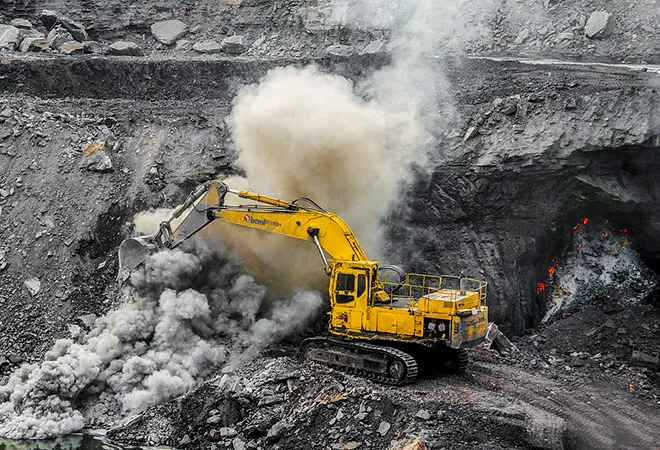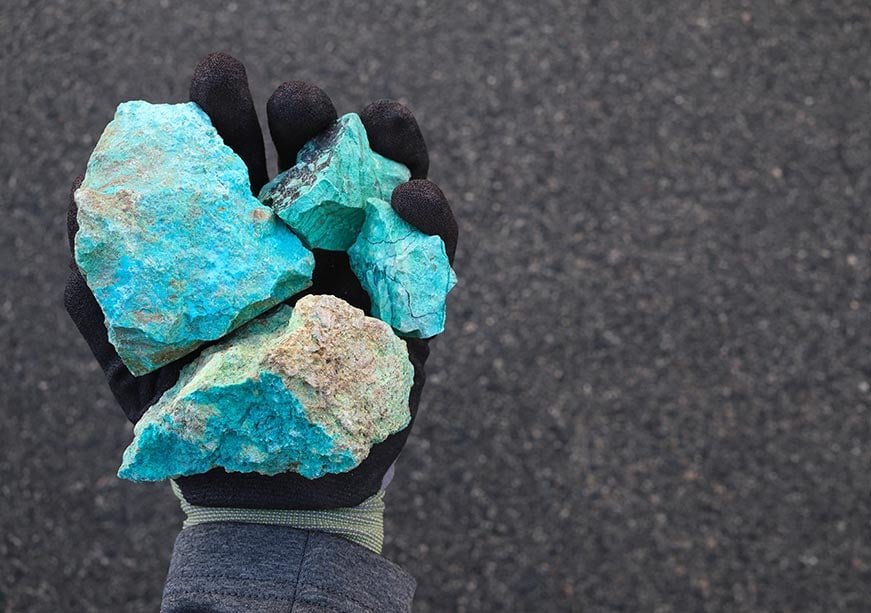Introduction: Why Critical Minerals Matter
The world is undergoing a transformation as industries push for greener technologies, digitalization, and electrification. With electric vehicles (EVs), solar panels, and advanced batteries dominating global growth sectors, the demand for critical minerals such as lithium, cobalt, and rare earth elements has skyrocketed. This has led to the need for sustainable and secure supply chains for these resources.
India, France, and the UAE have recognized this growing challenge and have begun collaborating in a trilateral partnership to address the critical minerals conundrum. In this article, we will explore how this strategic alliance can reshape the future of critical minerals and secure a stable global supply for their respective nations.
The Need for Critical Minerals
Critical minerals are the backbone of modern technologies and renewable energy systems. Countries worldwide are racing to secure their supply of these minerals to power industries like electric vehicles, energy storage, and digital devices. This demand is growing faster than supply, resulting in increasing prices, geopolitical tensions, and supply chain disruptions.

Key critical minerals such as lithium, cobalt, and nickel are primarily extracted from regions like China, Africa, and South America, making it crucial for nations to diversify their sourcing strategies to ensure energy security and industrial growth.
India, France, and UAE: A Powerful Trilateral Partnership
India, France, and the UAE have unique advantages that make them well-positioned to lead in the global race for critical minerals. Together, their collaboration can leverage their respective strengths in technology, infrastructure, and geopolitical influence to build a more secure and sustainable global supply chain.
India’s Strategic Role
India is one of the largest consumers of critical minerals in the world, primarily driven by its rapidly growing technology sector and push for renewable energy. However, the country is heavily reliant on imports, which leaves it vulnerable to global supply chain disruptions. Through the India-France-UAE partnership, India seeks to secure stable sources of these minerals, potentially through joint exploration and mining projects in resource-rich regions.
Additionally, India’s emerging role as a global manufacturing hub presents opportunities to integrate sustainable practices in the extraction and processing of these critical materials, boosting domestic production capacities and reducing dependence on foreign suppliers.
France’s Technological Expertise
France has long been a leader in innovation, particularly in the fields of energy transition and high-tech industries. With a focus on reducing reliance on fossil fuels, France has developed advanced technologies in electric vehicle production, battery storage systems, and renewable energy infrastructure. Through its role in the trilateral partnership, France can offer technological expertise to improve the efficiency and sustainability of mineral extraction and processing.
Moreover, France’s role in the European Union provides a gateway for collaborative efforts in securing the supply of critical minerals across Europe. The partnership could align the policies of the EU with the ambitions of the India-France-UAE trilateral group, ensuring greater cooperation on mineral sourcing, trade, and technology-sharing.
UAE’s Strategic Geopolitical Position
The UAE is strategically located at the crossroads of Asia, Africa, and Europe, making it a key player in international trade and logistics. The UAE’s modern infrastructure, including world-class ports and transportation networks, is a valuable asset for facilitating the global movement of critical minerals.
The UAE has also made significant strides in diversifying its economy through investments in clean energy, technology, and sustainable industries. By leveraging its growing reputation as a hub for innovation and international collaboration, the UAE can play a pivotal role in facilitating the flow of critical minerals from resource-rich regions to global markets.
Collaborative Pathways for the Trilateral Partnership

The India-France-UAE trilateral partnership offers several pathways to addressing the critical minerals challenge. Let’s explore some of the key initiatives that could drive the success of this alliance.
Joint Exploration and Mining Initiatives
The partnership can explore opportunities for joint ventures in mineral-rich regions such as Africa, Latin America, and Southeast Asia. Through collaborative mining projects, the three countries can access untapped reserves of critical minerals while ensuring sustainable and ethical mining practices.
By pooling resources, sharing risks, and combining expertise, India, France, and the UAE can establish a diversified supply chain that reduces dependence on any single region or country. This would enhance global stability and ensure the security of critical minerals for future generations.
Sustainable Processing Technologies
Mineral extraction and processing are energy-intensive operations that can have significant environmental impacts. France’s expertise in clean energy and technology could play a critical role in reducing the carbon footprint of mineral processing operations. Through the trilateral partnership, India, France, and the UAE can collaborate on developing and implementing sustainable processing technologies.
These innovations could include energy-efficient techniques for mineral refining, closed-loop water systems for mining operations, and advanced recycling methods to recover valuable minerals from e-waste and industrial byproducts.
Developing Circular Economy Models
Another important area for collaboration is the development of circular economy models. The concept of a circular economy aims to reduce waste and make the most out of available resources. In the context of critical minerals, this involves recycling materials from used batteries, electronics, and other devices to recover valuable minerals.
The three nations can work together to set up recycling facilities and systems to reclaim critical minerals from discarded electronics. This would reduce the pressure on primary sources and contribute to a more sustainable and resilient supply chain.
Enhancing Geopolitical Coordination
Geopolitics plays a crucial role in the supply of critical minerals. Political instability, trade tensions, and export restrictions can create significant disruptions. To mitigate these risks, the India-France-UAE trilateral partnership can focus on strengthening diplomatic relations with key mineral-exporting nations and establishing frameworks for cooperation.
By enhancing geopolitical coordination, the three countries can work together to ensure a stable flow of critical minerals across borders. This would involve negotiating trade agreements, ensuring fair practices, and minimizing the impact of political instability on the supply chain.
Future Prospects: A Model for Global Cooperation
As the world grapples with the challenges of securing critical minerals, the India-France-UAE trilateral partnership serves as a model for international cooperation. By pooling resources, sharing expertise, and fostering innovative solutions, these nations are paving the way for a more secure and sustainable future for the global supply of critical minerals.

This collaboration also has the potential to set a precedent for other nations to follow suit, demonstrating the importance of multilateral efforts in solving complex global challenges.
Conclusion
The critical minerals conundrum is one of the most pressing issues of our time, and the India-France-UAE trilateral partnership is uniquely positioned to tackle this challenge head-on. Through joint exploration, sustainable processing technologies, circular economy initiatives, and geopolitical coordination, the three countries can create a secure, sustainable, and diversified global supply chain for critical minerals. As the partnership continues to evolve, it will play a vital role in shaping the future of global industries, renewable energy, and technological innovation.
Read More: Dibba Al-Fujairah’s Seafood Festival Attracts Thousands of Visitors













